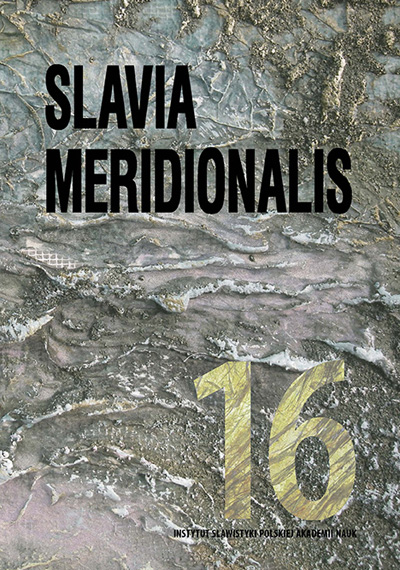Philip Rieff’s Typology of Culture and Its Applicability to the Literary Hybridization of the Theological Ideas of Humanity and Spiritual Progress (A Bulgarian Case Study)
Philip Rieff’s Typology of Culture and its Applicability to the Literary Hybridization of the Theological Ideas of Humanity and Spiritual Progress (a Bulgarian Case Study)
Author(s): Grażyna Szwat-GyłybowaSubject(s): Christian Theology and Religion, History, Language and Literature Studies, Studies of Literature, Social history, Recent History (1900 till today), Theology and Religion, Bulgarian Literature, Biblical studies, Sociology of Religion
Published by: Instytut Slawistyki Polskiej Akademii Nauk
Keywords: Bulgarian literature; contemporary literature; Teodora Dimova; Philip Rieff; Judeo-Christian paradigm;
Summary/Abstract: The twentieth century has become in a special way a time of reflection on the theological roots of human thinking, including thinking in political terms; suffice it to mention such names as Walter Benjamin, Carl Schmitt and Erich Voegelin. One of the thinkers who joined the ongoing disputes was Philip Rieff, who in his book My Life Among the Deathworks (2006), took on the task of a controversial (according to many) revitalization of the Judeo-Christian paradigm. Reflecting on the subject of art works over several centuries, he abstracted typological criteria allowing him to build a dichotomous model of art, as dedicated either to death (the non-Judeo-Christian variety) or to life (the Judeo-Christian variety). The paper attempts to verify his reasoning by reflecting on the theological models of humanity and spiritual progress in Teodora Dimova’s novel The Train to Emmaus (Vlakat za Emaus, 2014).
Journal: Slavia Meridionalis
- Issue Year: 2016
- Issue No: 16
- Page Range: 467-481
- Page Count: 15
- Language: English

